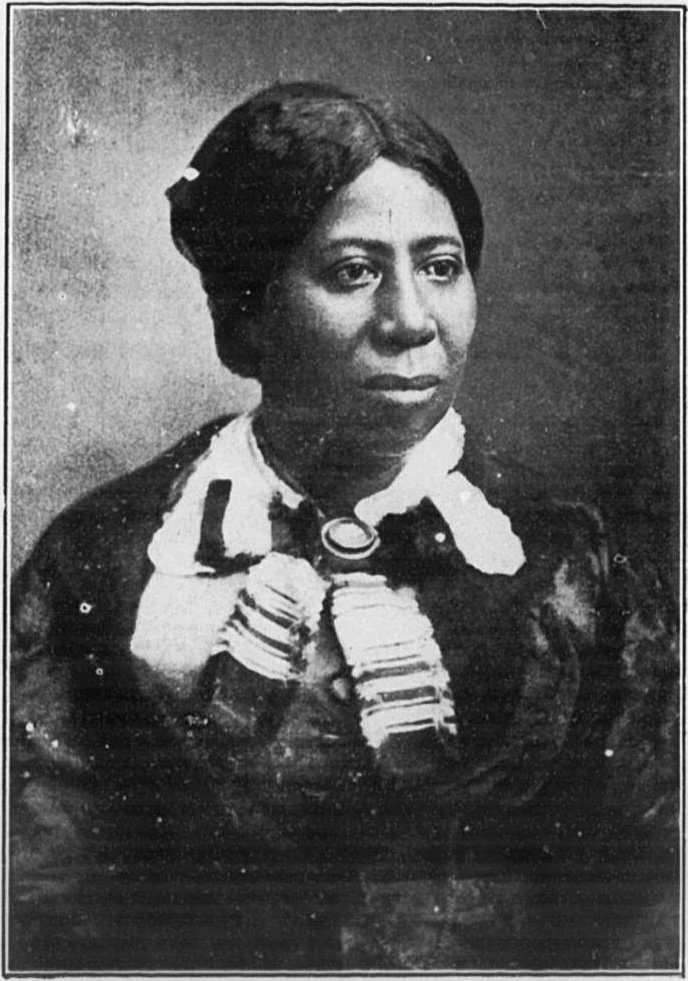Freedom Wasn’t Free: Anna Murray Douglass, Black Women’s Labor and the Economics of Erasure
But what was freedom to Anna Murray Douglass?
Each July 4th, we revisit Frederick Douglass’s searing question: “What to the Slave Is the Fourth of July?” Rarely do we ask the follow-up: Who helped him get free socially, emotionally, financially?
Anna Murray Douglass was born free but lived under the weight of racism, sexism, and classism. A domestic laborer, abolitionist, and member of the Underground Railroad, she labored tirelessly and used her earnings to buy the sailor’s clothes Frederick wore to escape slavery. She sold her bed, saved her wages, and later joined him, providing the supplies they both needed to survive and build a new life.
And yet her name is erased from most narratives. Biographies seldom credit her labor, while the white woman who taught Frederick to read is consistently lionized.
As Douglass rose socially and politically, Anna was cast aside. Her intellect was dismissed. Her moral clarity devalued by the same systems of white supremacy that elevate cis men while invisibilizing the collective, often gendered labor that makes it possible.
This isn’t just history. It’s a pattern that still operates today.
Black Women, Femmes and Nonbinary People Extend Economic Solidarity. Then They’re Forgotten.
Black women and nonbinary people remain the economic foundation of families and movements. Yet their contributions continue to be undervalued, underprotected, and overlooked in public policy:
In April 2025, Black women lost 106,000 jobs. This was the highest job loss of any demographic group (Ebony).
This year, their unemployment rate rose from 5.1 percent to 5.8 percent, while unemployment for white and Asian women remained around 3 percent (Bureau of Labor Statistics via FRED).
Black women still earn just 64 cents for every dollar paid to white, non-Hispanic men (americanprogress.org).
Women now contribute 40 to 50 percent of household income. In 2022, 31 percent of women earned half or more of their family’s income (Center for American Progress).
Black Americans also paid an average of $5,540 in federal income taxes in 2023, with Black women contributing significantly through both income and payroll taxes (cbpp.org).
Despite these massive contributions, Black women continue to experience structural inequity and are often the first to be laid off when the economy contracts.
We Act Fast. Then We Forget Faster.
When financial stress hits through job cuts, tax hikes, or recession fears, institutions react quickly. Capital gets reorganized. Budgets get slashed. Whole departments vanish.
But just as fast as systems scramble to protect themselves, they forget the people whose labor sustained them through crisis. Black women, whose wages support entire families and whose taxes sustain government services, are treated as expendable.
We see the same cycle Anna Murray Douglass lived through. The people doing the most to ensure survival are quickly pushed aside, left out of the retelling, or replaced in the story with figures who were never actually central to the work of freedom.
Solidarity Economics Means Remembering What Was Erased
Anna Murray Douglass understood something even Frederick Douglass didn’t fully grasp at the time: freedom is never a solo project.
She didn’t just support Douglass. She funded and co-built the very infrastructure that allowed him to become who he was. That kind of labor is not just support work. It’s survival work. It’s systems work. It’s solidarity economics.
Today, we live in an economy that asks everything of Black women and nonbinary people but gives little back. We benefit from their tax dollars, their unpaid care work, their wages, and their intellectual labor. But when it’s time to extend reciprocity, the world falls silent.
If your work touches economic justice, equity strategy, or public policy, ask yourself:
Who is doing the real work that keeps families and movements afloat?
Are those people centered in the decision-making and design?
Are they receiving the investment and protection their contributions deserve?
Are we moving from a place of reciprocity or extraction?
Are we giving back keeping the same energy with which much has been given to us freely by Black women and Black nonbinary people?
If you are a Black woman, femme, or nonbinary person ask yourself these questions to reclaim the value of your labor:
In what ways have you offered financial, emotional, or logistical support that helped someone else survive, grow, or resist?
What care work have you done—childcare, listening, cooking, organizing, mentoring—that kept a household, movement, or community going?
Have you ever sacrificed your own rest, resources, or recognition to hold something together for others? What did that cost you?
What would shift if you recognized these acts not as extra or optional but as essential labor that sustains entire economies?
We need solidarity economics rooted in Black feminist values. Models that understand that systemic oppression does not fall evenly. That economic pain hits many faster and harder than those at the top. That labor can be both invisible and essential.
Remember Anna Murray Douglass.
Not as a quiet supporter.
Not as a footnote.
But as a strategist.
A provider.
A freedom worker.
Her labor made liberation possible.
The least we can do is remember her name and carry her legacy forward through policy, practice, and community care that honors the people whose labor has always held this country up.
Sources and Further Reading

